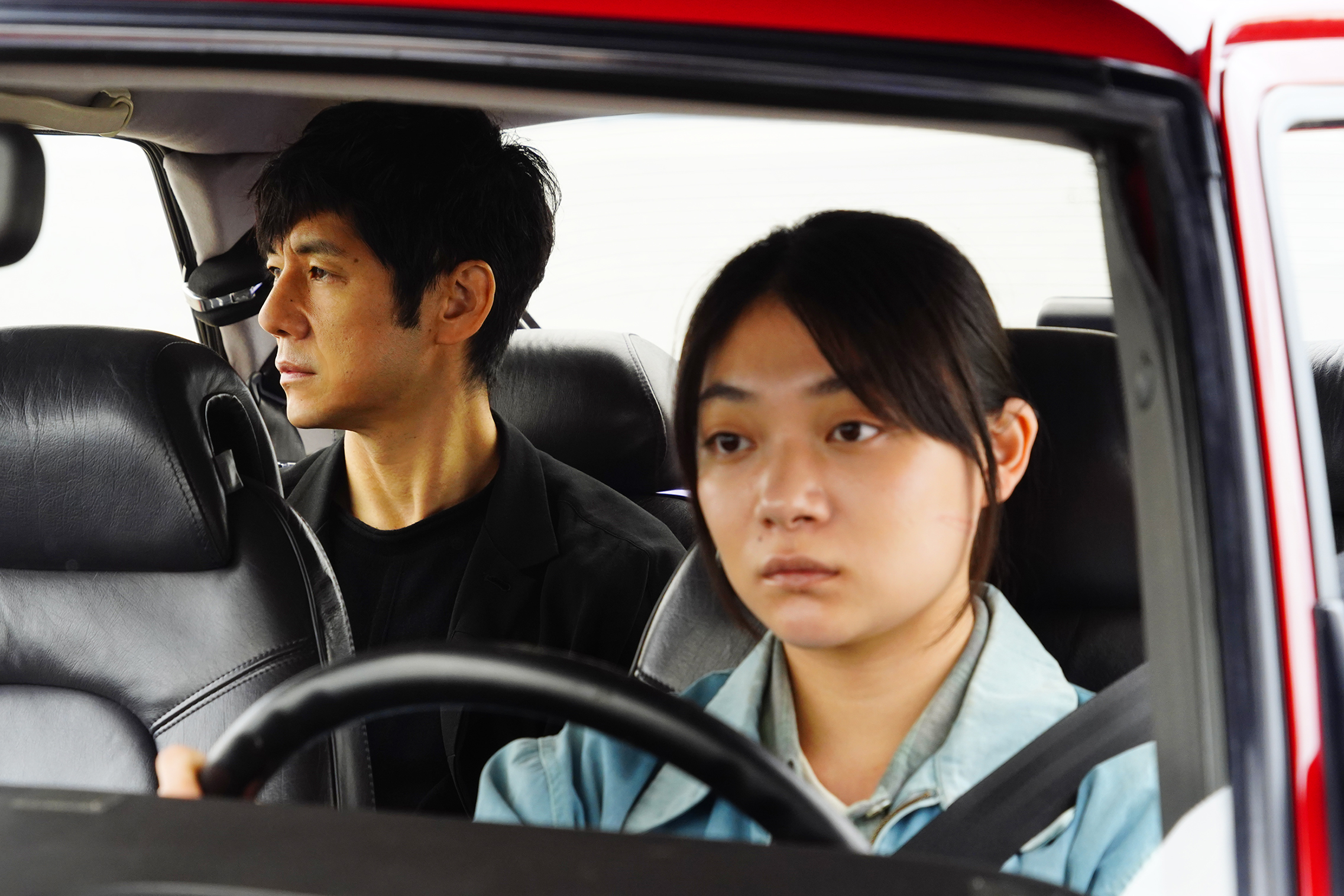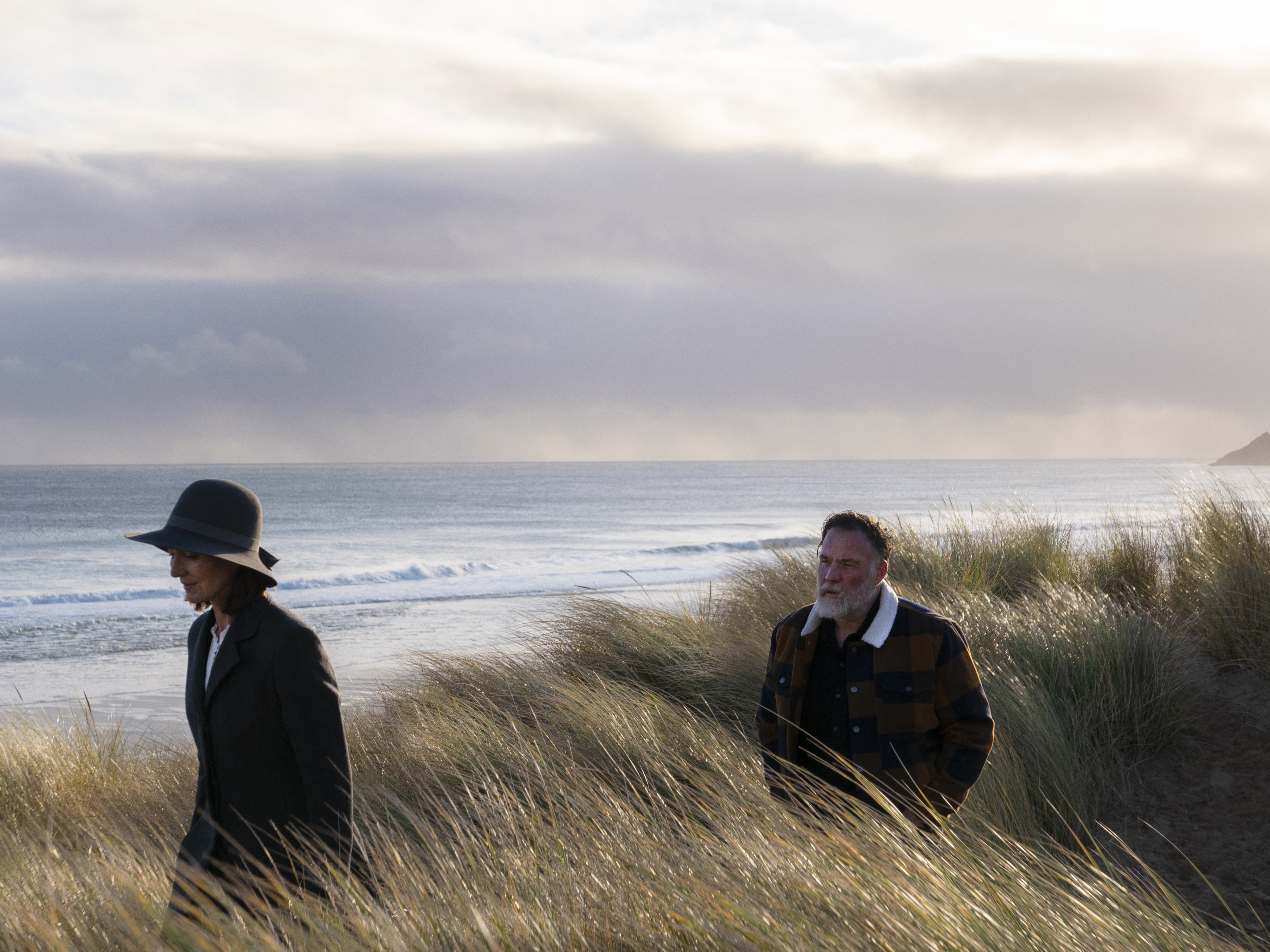Now Playing
Current DJ: Beatnik
Einstürzende Neubauten Planet Umbra (Planet Umbra) from Rampen: apm (alien pop music) (Potomak) Add to Collection
Requests? 773-DJ-SONGS or .(JavaScript must be enabled to view this email address)

by Kyle Sanders
I love that scene in A Few Good Men when Jack Nicholson's character takes Tom Cruise down a peg with his famous "YOU CAN'T HANDLE THE TRUTH" speech. It's the sort of movie quote that gets overwhelmingly referenced in other matters of pop culture, but also, it ain't no lie.
Dramatic films often include characters that bend themselves over backwards to find out the truth about someone or something, going to extreme lengths even if it means alienating themselves from friends, family, their job, or their sanity.
And the truth can especially cut like a knife when it wedges itself between two lovers. Here at the Chicago International Film Festival, I found two films where the idea of truth serves as the main plot device, causing a tormented man to pointlessly chase after it and a demure woman to construct it to her own advantage.
Winner of the Best Screenplay at this year's Cannes Film Festival, Japan's Drive My Car opens on a loving married couple: stage actor/director Yusuke (Hidetoshi Nishijima) and his screenwriting wife, Oto (Reike Kirishima). The pair seem happily married, but Yusuke discovers cracks beneath their picture perfect relationship.

Drive My Car
Before Yusuke can confront Oto, she unexpectedly dies. A few years pass, and Yusuke throws himself into his work, moving to Hiroshima to direct a multilingual production of Uncle Vanya. His employers insist he be provided with a female chauffeur, who also lives with unresolved wounds.
Directed by Ryusuke Hamaguchi, this sprawling film is nearly three hours long, but shows such intimacy with its characters that you'll ride along with them through their transformative journey.
In Nobody Has To Know, weathered farmhand Phil (Bouli Lanners, who also co-wrote and directs) suffers a stroke that gives him temporary amnesia. When his memory comes back isn't known, so he's left in the care of Millie (Michelle Fairley, better known as the fiery Catelyn Stark on Game of Thrones), the timid farmer's daughter who's known Phil for much of her life.
Obviously, awkwardness abounds early on between the two, but it's not long before Millie informs him that they're lovers. So begins a path to reclaiming their romance and shared memories, but all is not quite as it appears. Will Phil learn the truth on his own, or will Millie's guilt reveal it before then? This U.K. title provides an intriguing romantic drama set in the Scottish Highlands.

Nobody Has to Know
Nothing provides better drama than being in a relationship, and these two films really know how to sell it. Both star two men whose lives become reconstructed thanks in part to a woman.
For Yusuke, he's never doubted the love of his wife, even after he catches her in an act of infidelity. He never once confronts her about it, and just when he thinks she's about to admit to it, she unexpectedly dies, leaving him to wonder forever. Was she really in love with him? Was their relationship really as meaningful as he had assumed?
As someone involved with a Chekov play heaping with themes of wasted lives and impossible loves, you would think he'd be more aware of the wasted regret he feels preventing him from moving on with his life. Yet the truth of the unknown tends to cause people to do that.
For Phil, his stroke provides him a clean slate for a memory, and is left dependent on a woman to help rebuild his past that may or may not be true. Can you rediscover yourself based on what someone else tells you?
When Millie tells Phil they were lovers, Phil instinctually believes it, because after they've been reintroduced, he's unable to get her off his mind. If the feeling is there, then it must be true, right?
Millie's guilt eventually spills out the truth, even after his memory comes back. Yet it doesn't bother him, because his "second life" that she builds for him is better than the previous life he once lived, and Phil believes he's better because of it. With or without knowing the truth, Phil can't imagine moving forward without Millie in his life.
Can we really handle the truth, then? Is it better to live with confirmation or to blissfully live in ignorance? I guess that might depend on the film you're watching. Drive My Car and Nobody Has to Know for instance, seem to suggest that truth doesn't change anything, but moving forward with your life certainly can help.
The Chicago International Film Festival runs October 13 - 24. For more information, check out chicagofilmfestival.com and follow @chifilmfest for other updates!
Next entry: CHIRP Radio Weekly Voyages (Oct 25 - Oct 31)
Previous entry: Chicago International Film Festival Highlight: “The French Dispatch”